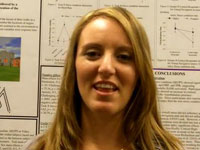Feel Great, Meditate
We all know that levitating off the ground when you meditate is just a myth, but there is lots of scientific research to back-up the idea that meditation can improve our lives. At the APS 23rd Annual Convention, Katherine MacLean of the University of California, Davis, Bethany Kok of the University of North Carolina, Chapel Hill, Catherine Ortner of Thompson Rivers University in Canada, and Matthew Hunsinger from Mary Baldwin College led a symposia on the affective, cognitive, and social benefits of meditation.
Studies have found that volunteers who had attended a meditation retreat performed better on visual tasks than the control group, and this even held true five months later for the volunteers who continued to practice meditation on their own.
Other studies have found loving-kindness meditation, a type of meditation aimed at cultivating an intention to feel positive emotions towards others, the self, and the world, is associated with increased social connectedness which, in turn, increases heart rate variability, a health benefit shown to reduce the likelihood of heart attacks.
Another type of meditation is mindfulness which involves attention to ongoing subjective experience with an attitude of acceptance was found to take up less cognitive resources than emotion regulation strategies such as reappraisal and suppression. Finally, a study found that meditation practitioners tend to express more empathy towards others and are less prejudiced than volunteers who did not practice meditation.
There are many different styles of meditation, each with their own benefits, but all around mediation has been shown to improve well-being, so grab your yoga mat and begin your deep breathing!





Comments
Awesome, thanks for sharing this! I think everyone who practices meditation will soon feel benefits, but it’s great that scientists can show them too!
APS regularly opens certain online articles for discussion on our website. Effective February 2021, you must be a logged-in APS member to post comments. By posting a comment, you agree to our Community Guidelines and the display of your profile information, including your name and affiliation. Any opinions, findings, conclusions, or recommendations present in article comments are those of the writers and do not necessarily reflect the views of APS or the article’s author. For more information, please see our Community Guidelines.
Please login with your APS account to comment.